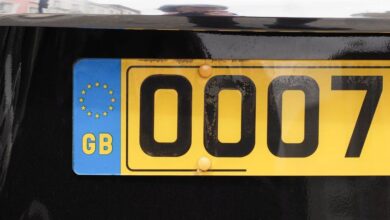Why Some Used Cars Hold Their Value While Others Plummet
Ever wondered why your mate’s three-year-old BMW is still worth a decent chunk of change whilst your cousin’s motor from the same year is practically worthless? The used car market can be a massive minefield, with some vehicles maintaining their value like champions and others dropping faster than a lead balloon.
Understanding what separates the winners from the losers could save you thousands when it comes to buying or selling.
Brand Reputation Makes All the Difference
It’s fair to say that some manufacturers have simply built better reputations than others. Brands like Toyota, Honda, and Lexus have spent decades proving their reliability, which means buyers are willing to pay premium prices for their used models, such as a Toyota Corolla or a Honda Civic. These cars are seen as safe bets, the automotive equivalent of a reliable pair of boots that’ll last for years.
On the flip side, certain manufacturers have struggled with reliability issues or poor build quality in the past. Even if they’ve improved dramatically in recent years, that reputation takes ages to shake off. It’s unfair, but perception often matters more than reality in the used car world.
Reliability Records Speak Volumes
Cars that consistently appear at the top of reliability surveys tend to hold their value remarkably well. Nobody wants to buy someone else’s problem, so vehicles with a track record of expensive repairs or frequent breakdowns become harder to shift.
Someone living in Scotland browsing used car sales in Glasgow will likely notice that models known for their dependability command higher prices, even with significant mileage.
The smart money goes on cars that won’t leave you stranded or drain your bank account with repair bills. That’s why certain Japanese models, despite being less exciting than their European counterparts, often retain value better.
Supply and Demand Economics
Basic economics plays a huge role in determining which cars hold their value. Limited production runs, discontinued models, or vehicles with cult followings can actually appreciate rather than depreciate. Think classic hot hatches or sports cars that manufacturers no longer make – suddenly everyone wants one.
Conversely, cars that were produced in massive numbers often see their values tumble. When there are loads of similar vehicles flooding the market, prices naturally drop as sellers compete for buyers’ attention.
Technology and Features Matter
Modern cars packed with desirable technology tend to age better than basic models. Features like satellite navigation, premium sound systems, advanced safety equipment, and efficient engines help maintain appeal as the years roll on. However, there’s a catch – technology that becomes outdated quickly (like early infotainment systems) can actually harm resale values.
Market Trends and Fuel Prices
External factors beyond the manufacturer’s control significantly impact used car values. Rising fuel costs make efficient diesels and hybrids more desirable, whilst environmental concerns boost electric vehicle values. Economic uncertainty can shift demand towards smaller, more economical cars, leaving petrol-guzzling SUVs such as Range Rovers struggling.
The used car market reflects society’s changing priorities. As environmental consciousness grows and running costs become more important, the vehicles that adapt to these trends maintain their appeal and, consequently, their value.
Understanding these factors won’t guarantee you’ll pick a winner, but it’ll certainly improve your odds of making a smart automotive investment.



